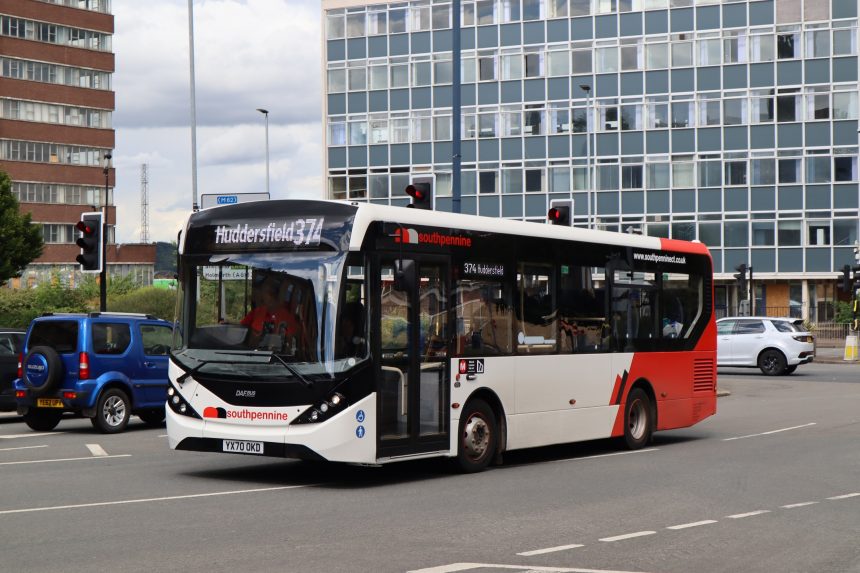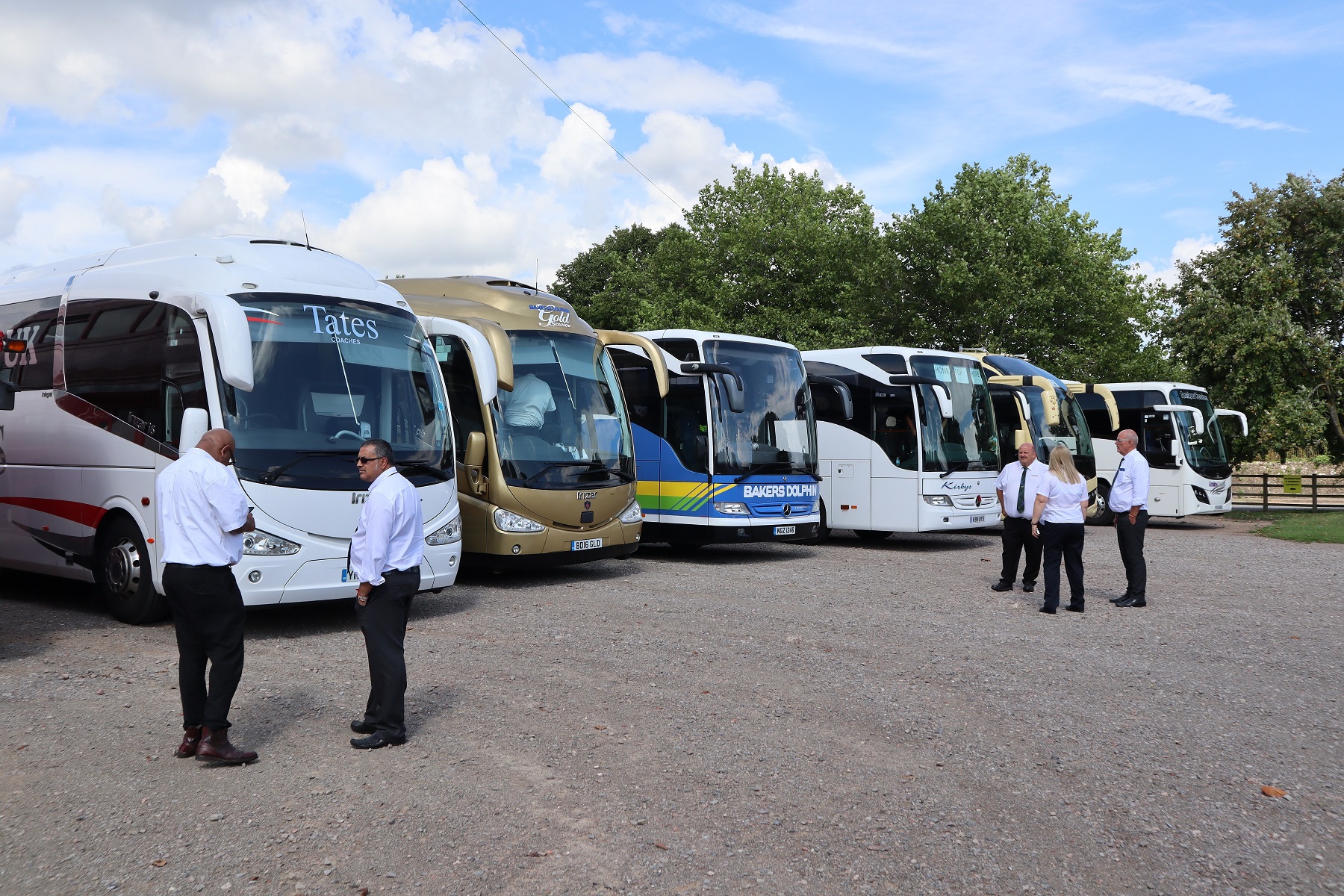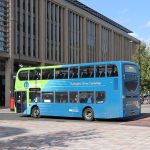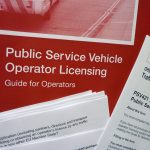Bus franchising could be introduced in West Yorkshire from June 2026, with a decision on whether such an avenue will be followed due to be made by Mayor Tracy Brabin on 14 March 2024.
Details of the franchising proposals are within documents including a consultation that were published by the West Yorkshire Combined Authority (WYCA) on 10 October. It believes that reregulation of services in the conurbation is the best way to deliver improvements. Ms Brabin previously made bus reregulation a manifesto commitment after it was first raised in early 2020.
The consultation notes that implementation would cost in the region of £358 million, with a £252 million fleet element of that involving 868 zero-emission buses (ZEBs) owned by WYCA spread over 14 years. Acquisition of 10 depots, and fit-out out for ZEBs, is estimated at £85.5 million.
10 zones proposed in West Yorkshire bus franchising plans
Under plans laid down in a 981-page Bus Reform Assessment, West Yorkshire would be broken into 10 zones centred on existing large depots. Leeds is made up of three zones. Each of those 10 would then be split into lots.
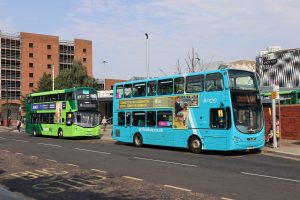
Local service contracts in each zone would consist of a single “large lot,” which WYCA expects will provide opportunities for major operators; and numerous smaller lots that will cover low-frequency services and have 1-45 buses each.
Other smaller lots will capture home-to-school routes, but those that are closed-door will be excepted, as will rail replacement work.
WYCA proposes that large lots would each come with a seven-year local service contract. Smaller lots’ duration would be determined on an individual basis. If franchising goes ahead, contract procurement is expected to begin in October 2025.
Competitive market for bus franchising contracts to be sought
Its commercial case notes that WYCA wants a “competitive market for franchise contracts.” It thus plans to minimise barriers for entry to SME operators. The case says that the WYCA-owned ZEBs are slated to be purchased over the medium- to long-term and provided to successful bidders. There will be no immediate wholesale fleet renewal programme.
“During the initial phase of contracts, there may be a requirement for operators to provide fleet to supplement the Combined Authority-owned ZEBs, [but] this will not make up the majority of fleet in a lot and as a result, is not considered a barrier to entry,” the case says.
However, the preferred option for fleet strategy outlined in the Assessment document describes WYCA’s preferred approach as a “gradual intervention.” New ZEBs would be purchased at the rate of 62 per year, with a projected fleet of 868 of them by 2040. Some such buses are already in hand via successful Zero Emission Bus Regional Areas work.
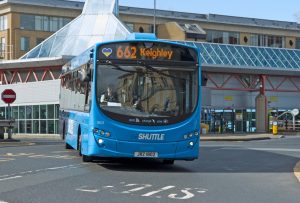
It thus appears clear that ZEBs would make up only a minority of most initial lot awards and that operators would provide the balance of stock during the transitional period.
For those, a residual value mechanism would be imposed should WYCA have “an obligation to acquire any fleet used as part of the contract at the end of the contract life,” it states.
Concern from SME operators already acknowledged by WYCA
The Combined Authority has acknowledged likely concern from small bus operators in West Yorkshire around the potential for business loss via franchising. As a result, it may mandate that smaller lots could not be operated from a depot that provides a large lot.
“This would mean that while larger operators could bid for these smaller lots, they would not be able to use a large depot provided by the Combined Authority, as this would give them an advantage in tendering,” it explains.
The likely level of interest in franchising from SME operators is unclear. WYCA says that it has attempted to engage with them already. “This has proven difficult, as many of the organisations have limited resources and time spent in consultation may be a distraction from running their business,” the commercial case says.
The first round of franchising would capture Kirklees, one part of Leeds, and what WYCA describes as the “Heavy Woollen” area. Two more rounds would complete the process. Conclusion of the franchising rollout is expected by early 2028, if the process goes ahead. The consultation closes on 7 January 2024.




















